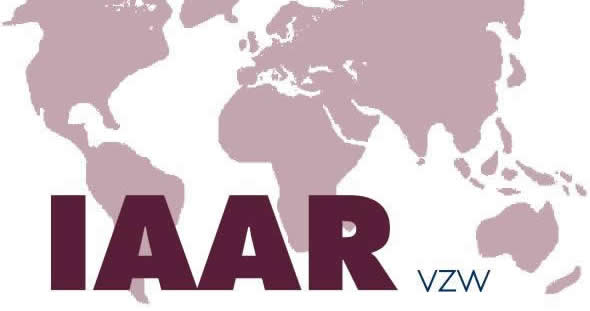
M: So Romania, we would like you to tell us about your work with people, women, who can neither read nor write. We know you have experience in this field, can you tell us a bit more?
R: Yes, about the illiterate women of today… I chose to work with these mothers departing from André Rochais’ system. He did not define a certain category of people who can discover themselves. He thought of everyone, so I said to myself: the illiterate and the marginalized, they too have the right to discover themselves and to speak in ‘our language’, which is Lingala.
Therefore, I started with some mothers and I felt that these mothers ‘understand’ our diagram of the person. If you talk about something, they feel that on the level of intelligence there is a reasoning. They also have feelings. They understand the sensitivity. And at the level of their deep conscience, they also feel what is bad and what is good. They are aware of that.
And that’s how I work with these moms. I explain our approach of the person.
- How do you feel, for example, when it comes to forgiveness?
Well, they tell me:
- If I do not forgive, there is sometimes something in my imagination that makes me realize that things are not normal in my head and that I have a problem. I feel uncomfortable, it starts bothering me, sometimes I can’t even walk, my heart beats fast and I’m no longer myself.
So, we did an exercise.
- Now we are going to make ourselves comfortable, we will listen to our being: there is also a voice that tells us to do bad or good things. Do you feel that?’
- Yes, we feel it.
- Now we will reach deeper. Little by little, for example for forgiveness.
- When I have forgiven, I feel relieved, I regain courage and peace returns to my heart.
With the moms it’s always like that. It makes me happy, for example by talking about the cursed, or about the process of mourning. I’m pleased about that.
- I have learned a lot and I am also starting to pass this on to other people.
That’s what I’ve often seen with these moms. They have nothing to give me… they gave me vegetables for example, when I was at the outskirts of the city. I was very happy, that they wanted to thank me in this way.
It’s my way of reaching out to the marginalized. These people also have the right to know themselves, to find their peace, to live who they are. I really connect with these moms, but now I have also added some dads. At first, I only worked with mothers, but one day when I gave a formation in town, in Matadi Mayo, a dad wanted to join us at all cost, and when he was with us, I felt his need. The dads also have the need to discover themselves and now I will mix dads and moms.
M. Do you always work on the theme of mourning?
R. No, no, I also work on the theme ‘me and the meaning of life, it is possible’. This too has been very good.
M. What else can you tell us about the diagram of the person? You have already explained the deep conscience, but how do you explain the other realities of the person such as the body, the sensitivity…, how do you do this?
R. I start by drawing the body on the board. In our body there is what? It encompasses everything.
Our intelligence – it is at the level of the head. In our intelligence, there is the will and also the freedom, and then I start working together with these: I have the freedom to do something, but also the will to do something, and one sometimes has moments when one needs to make a decision. For me too, when I do something, it helps me… or if I do another thing, it doesn’t help me. This is the level of our intelligence.
And at the level of sensitivity: I tell them:
- How do you feel, for example, when you are stressed?
- If I do something that comes from within, something good, I have courage…, but if it is something that is not good, I sometimes feel uncomfortable, I start to tremble.
And that’s our feeling, their feelings.
And I do the same for the deep conscience. And at the end I say:
- After a positive decision, how do you feel?
- I feel at peace, it is our deeper being.
So, every time I bring them back to find the core, I insist on it, little by little.
After making a good decision, they find their core, their being.
M. Do you see any impact it has on them?
R . Yes, there is an impact, there are other moms who have told me:
- Can our children do that too? We learned a lot. Now that I know how to live with my children at home, I now know how to live with my husband, how to live with less stress, now I know how to accept some difficult situations. When I’m stressed, I can’t get rid of it. I sense that what I feel is not right. These feelings are bad.
So yes, there is an impact. They have made considerable changes in their lives. They begin to be in contact with their core, their being. I feel it in these moms, and it gives me joy.
Thank you very much, Romania.





